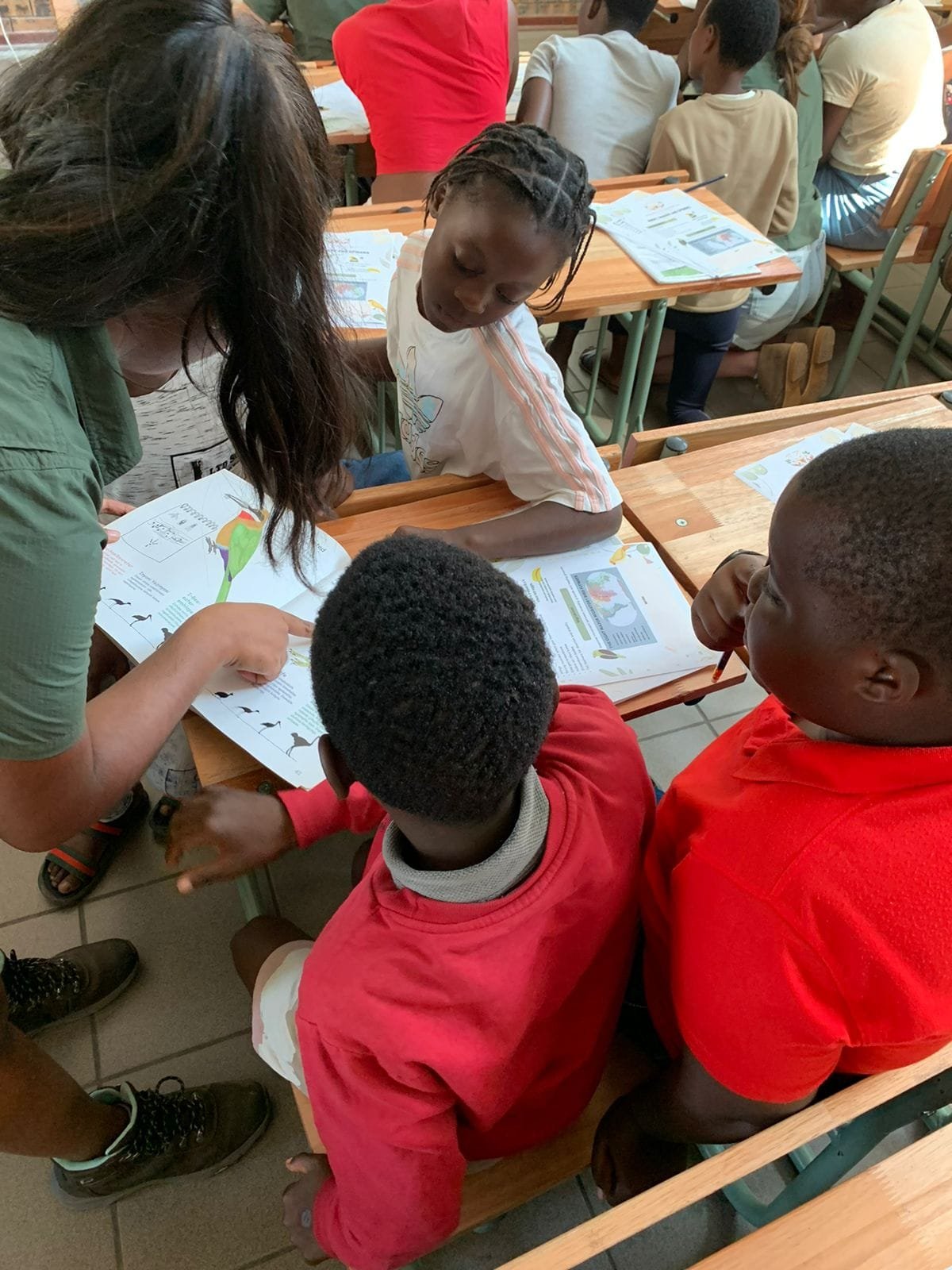Activist Spotlight: Sairusha Govindsamy
An interview with Sairusha Govindsamy — a South African activist with a passion for holistic conservation.
Sairusha Govindsamy is a South African veterinary science student, with a passion for conservation, who has been a part of our Youth Activist Network since the very beginning of ACA. We caught up with Sairusha to learn more about her activist journey and work in conservation.
When and how did your activist journey begin?
My activist journey has been an ongoing theme in my life, but it took intentional shape and form in 2020 during the COVID-19 lockdowns. There were so many environmental issues coming to the fore and I was looking for ways to make some sort of tangible difference. That’s when I found African Climate Alliance and joined the ACA Youth Activist Network and I haven’t looked back since.
What inspired you to study veterinary science?
Since I was a child, I’ve always had a passion for animals, wildlife, and conservation. So veterinary science felt like the only option for me. To this day, I can’t imagine myself doing anything else.
What is your favourite part about working in conservation in South Africa? And what is the biggest challenge?
My favourite part about working in conservation in South Africa is how rewarding it is. We have such amazing natural resources and such beautiful environmental spaces in our country. Every minute that I’m able to spend out in the field is so rewarding.
The biggest challenge would have to be the fact that people don’t see the need for conservation and the bigger picture. We have lost touch with how everything is interconnected. It’s an outlook that is rooted in capitalism and a very “me first”, individualistic approach. Whereas, we need to look at things holistically. Figuring out how to shift this mindset is the biggest challenge.
There is a belief that conservation work only focuses on the environment and is removed from social justice issues. In your view, how is conservation connected to social justice and the pursuit of a more equitable world?
Social justice and conservation are two sides of the same coin, because you can’t have social justice without conservation. Conservation strives to protect our natural resources and advocates for the well-being of wildlife, nature, and the environment. You can’t have social justice without environmental justice, which is what conservation translates into. Conservation is environmental justice.
I think that everyone has a birthright to nature. In the future that we are working towards, everyone deserves to have the means to enjoy that birthright and the opportunities to see themselves in natural spaces. Because of the way our societies have been built, many people don’t have the means to make ends meet and spending time outdoors is seen as a leisurely activity that they can’t enjoy.
I am a part of an NGO called Lessons in Conservation. We identify under-resourced communities, visit schools, and deliver a six-week programme. In this programme, we talk about everything from basic conservation jargon, ecosystems, food chains, different kinds of animals, and careers in conservation. Then, we take the students on an excursion to game reserves and show them what they have been learning. We show them how the theory can come to life.
This is always the most magical experience, because most of the time we are working with kids who live on the outskirts of big, lucrative game reserves and have no access to what is all around them. This makes you reflect on privilege.
Another great thing about Lessons in Conservation is that the lessons are delivered in an accessible way, and they are taught in such a way that the learnings can be retaught. So the hope is that the kids will learn from us and then transfer what they’ve learnt to their friends, family, and community — creating a ripple effect. The results we have seen from it are amazing. To see these kids so passionate about wildlife and conservation is so rewarding.
What is one lesson you have learnt from being a part of the ACA Activist Network over the years?
Being a part of ACA showed me that I wasn’t alone in this vision and journey. Others share this same hope for the future and there is a whole network of people that are ready to support you, because we’re all striving for the same goal.



